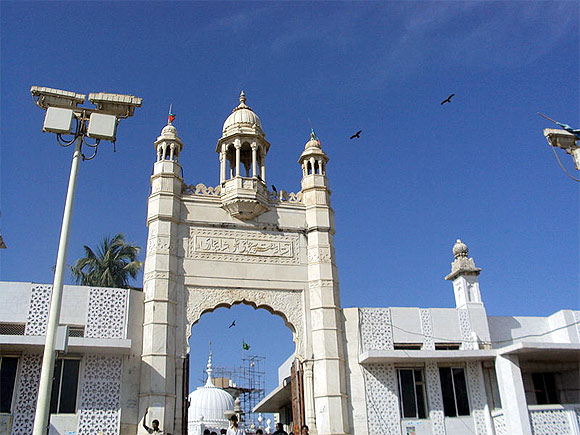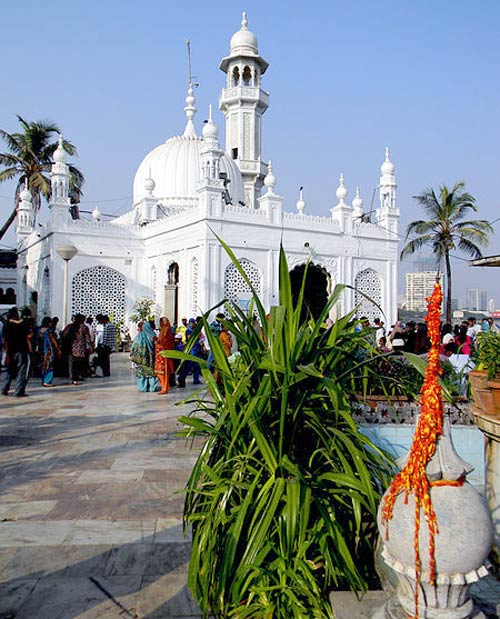 | « Back to article | Print this article |
'It may not be anti-Islam, but it is frowned upon'
The decision by the authorities of Mumbai's iconic Haji Ali dargah -- to bar the entry of women into the tomb area – has drawn widespread condemnation.
Authorities have decided that women will not be allowed to enter the sanctum sanctorum that houses the tomb of 15th century Sufi saint Pir Haji Ali Shah Bukhari at the dargah.
According to Dr Shahid Badr Falahi, former president of the Student's Islamic Movement of India, the decision to allow women inside a dargah is not against the tenet of Islam.
"It may not be anti-Islam, but it is frowned upon by some people, including me. I would not approve of a woman visiting a tomb. But the committee managing the dargah has the right to take the final decision in the matter. It is not always to a matter of religion. The decision may have been taken to control the crowd. There are many dargahs in Uttar Pradesh which allow women only in certain parts. On the other hand, women are allowed inside the Ajmer dargah. The final decision rests with the committee managing the dargah," he said.
Reportage: Vicky Nanjappa
Click on NEXT for more...
'Some Muslims are becoming more conservative'
Dr Ram Puniyani, a member of EKTA Committee for Communal Amity, claims that the decision was triggered by the worldwide reaction to Islamophobia.
"As a reaction to Islamophobia, a section of Muslims are becoming more conservative. The Haji Ali dargah incident is just one of the many results of this neo-conservatism. After the 9/11 terror attacks, the United States went all out with terms like Islamic terror etc. Many Muslims have felt threatened ever since," he said.
"On this particular issue, I don't think a ban is called for. It is neither needed nor is it relevant. It is condemnable in my view. Islam speaks of equality for women, but a section of the Maulanas is conservative. This tends to affect the freedom of Muslim women in India. I also don't think such incidents will have a great bearing on the divide in Indian society. It is divisive politics that divides India. We must be careful to ensure that some radicals do not use this incident as a handle to demonise Islam further," Dr Puniyani said.
Click on NEXT for more...
'Many of us are trying to bring in change'
A maulana in Bangalore, on condition of anonymity, lamented that the ban was condemnable.
"Many of us are trying to bring in change and ensure that our religion becomes more liberal. The Bepari Mosque in Bangalore was the first one to allow women to pray inside the mosque. It is situated on Commercial Street, a busy shopping area in Bangalore. When the men went in for prayers on Friday, the women used to stand outside and wait. Then it was decided that the women should not wait outside; they should pray inside the mosque. There was opposition to the idea at first, but the issue was soon resolved and today there are no problems," he said.
Dr Zafrul Islam Khan, editor of the Milli Gazette and former president of the All India Muslim Majlis-e-Mushawarat, said, "I think it is a form of misogyny to bar women from such public places. Instead, the dargah administrators should ban anti-Islamic practices like worshiping grave(s) and taking vows (mannats) at this and other dargahs".
Click on NEXT for more...
TOP photo features of the week
Click on MORE to see another set of PHOTO features...



